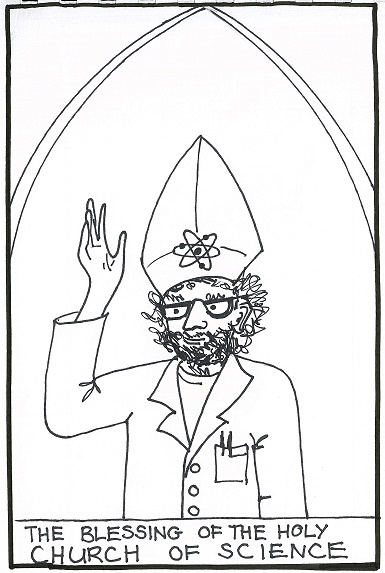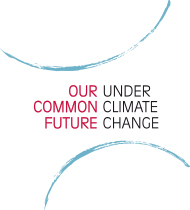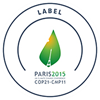�
Our Common Future Under Climate Change
International Scientific Conference 7-10 JULY 2015 Paris, France

Elizabeth Connor
A new climate for society: From hubris to humility
201507-16
By Gwendolyn Blue and Juliana Knapp
In the early 2000s, the rapper MC Hawking released the song �What we need more of is science�.�
MC Hawking is a persona created by web developer Ken Lawrence in the image of the venerable physicist Stephen Hawking. We need more science, MC Hawking tells us, in order to defeat the villainous fundamentalists who use their dogma rays against reason and evidence: ��Upon blind faith they place reliance, what we need more of is science!�
MC Hawking could well have been referring to climate policy. Science, after all, is central to collective decision-making on this pressing issue. The scientific community has been instrumental in putting climate change on the policy agenda. It provides us with important ways of thinking about climatic variability through probability estimates, instrument records, and scenario forecasts, among many other approaches.�
As the outcome statement of this conference attests, �Science offers robust foundations for ambitious outcomes at COP21 and beyond.��
Science matters. Yet, science also has limitations.�
In her plenary address, Sheila Jasanoff � a Professor of Science and Technology at Harvard University and a leading figure in her field � examines the limits of approaching climate change policy through a scientific lens. �Science can help us address climate change in many regards, she says, but it cannot assist us when the problems are ethical and political. It can�t tell us how to allocate resources nor to determine priorities and tradeoffs.�
Jasanoff questions approaches to climate policy that purport to be relevant and neutral but not prescriptive. �Judgments always shape policy and inquiry.�
The key for more robust policy debates is to make values as important as facts. What is worth knowing, whose knowledge counts, which facts are worth contesting and whose questions count are matters of judgment and need to be regarded as such.�
The rise of science began with the Enlightenment and the trumping of reason over tradition. While the Enlightenment has brought many benefits, it has evolved into a culture of hubris that overestimates the certainty of the knowledge science delivers.
Jasanoff proposes a second Enlightenment of modesty and humility in the face of uncertainty and unanticipated consequences. We need a new relationship for science and society in which the values of scientific reasoning are open to public debate, she says. A key challenge is to attend to neglected policy issues and social concerns, to history and culture and to normative concerns such as equity and justice.�
As Jasanoff has written elsewhere, the move from hubris to humility requires �the acceptance that truth is provisional, that questioning of experts should be encouraged, that steps forward may need corrective steps back, and that understanding history is the surest foundation for progress�.�
Moving from hubris to humility means posing alternative questions: In what other ways can policy questions be asked; who is most likely to be hurt; who loses and who wins; and how can we know better?
This is part of a blog series written by volunteer social reporters profiling climate scientists, economists, social scientists and civil society members who are presenting and discussing innovative climate science at Our Common Future. For more follow and #CFCC15 on Twitter.



